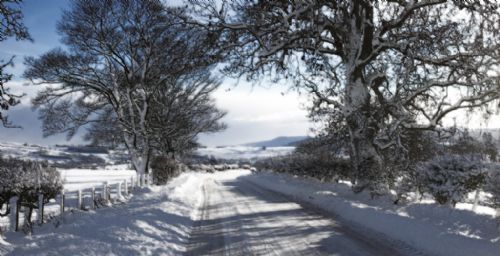SOURCE: University of Lincoln
DATE: January 4, 2018
SNIP: Severe snowy weather in winter or extreme rains in summer in the UK might be influenced by warming trends in the Arctic, according to new findings.
Climate scientists from the UK and the US examined historic data of extreme weather events in the UK over the past decade and compared them with the position of the North Atlantic polar atmospheric jet steam using a measure called the North Atlantic Oscillation (NAO) index.
The NAO indicates the position of the jet stream – which is a giant current of air that broadly flows eastwards over mid-latitude regions around the globe – through a diagram which shows ‘negative’and ‘positive’ spikes, similar to how a heart monitor looks.
The researchers highlight that the exceptionally wet UK summers of 2007 and 2012 had notably negative readings of the NAO, as did the cold, snowy winters of 2009/2010 and 2010/2011, while the exceptionally mild, wet, stormy winters experienced in 2013/2014 and 2015/2016 showed pronounced positive spikes.
The scientists also highlighted a correlation between the jet stream’s altered path over the past decade – so-called jet stream ‘waviness’ – and an increase during summer months in a phenomenon called Greenland high-pressure blocking, which represents areas of high pressure that remain nearly stationary over the Greenland region and distort the usual progression of storms across the North Atlantic.
Increased jet waviness is associated with a weakening of the jet stream, and the accompanying ‘blocking’ is linked to some of the most extreme UK seasonal weather events experienced over the past decade. The strength and path of the North Atlantic jet stream and the Greenland blocking phenomena appear to be influenced by increasing temperatures in the Arctic which have averaged at least twice the global warming rate over the past two decades, suggesting that those marked changes may be a key factor affecting extreme weather conditions over the UK, although an Arctic connection may not occur each year.

